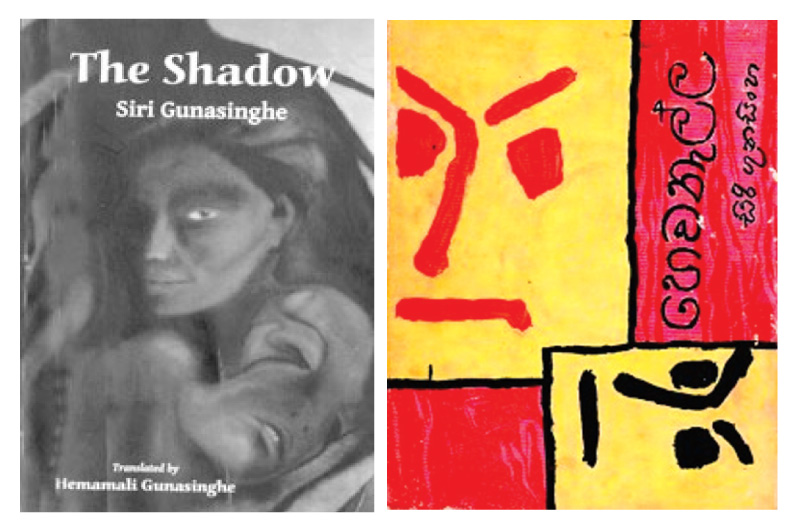Book reviews
Title: The Shadow
Author: Professor Siri Gunasinghe
Translator: Dr Hemamali Gunasinghe
Publisher: Vijitha Yapa Publications
The title page of this writer's copy of Dr. Siri Gunasinghe's Hevanella bears '1960' as the year of the publication of its first edition and, at the end of its 147 page text it carries my inscription, 're-read: 1983', which means, the allure of its story had not been lost to this reader even after 23 years: it speaks for itself; and, now after 50 years (2010), its English translation has appeared in the book stalls. It has taken half a century, but this writer feels, the quality of Dr Hemamali Gunasinghe's translation (“The Shadow”) is well worth the long wait for it. It is not intended here, to speak of the Sinhala book at any length, except to say that when it first appeared in 1960, it took the Sinhala reading public quite by surprise for, it may safely be said, nothing of its genre had been seen before by them and so, no wonder, their critical response was on a very wide spectrum; but it was seen, some writers of repute in this country, like Martin Wickramasinghe, it was evident from their comments, had taken it as a landmark work.
SG's novel, “The Shadow” in essence, is a comprehensive analytical study of the workings of the mind of a University Fresher trying to adjust himself to the changing circumstances of the new environment he has entered; the violent trauma he goes through in the process forms the warp and weft of the web that SG weaves his story, of the responses and reactions of the new University entrant, Jinadasa caught in an irresistible tornado of events and circumstances which turn out to be the absorbing saga of the tortured soul of Jinadasa trying desperately to reorient himself but, in the end, submitting to forces too overwhelming for him to overcome. In this conflict of forces the traditional entrenched values of a conservative Sinhala Buddhist society on the one hand and, on the other the sophisticated neo-urban cultural values are at issue.
The new forces emerging, in which Jinadasa is caught from the moment he enters the new environment, the University, start the process of wearing down the many inhibitions with which he has come which are now in imminent danger of being breached: they are the traditional codes of conduct which have been inculcated in him from his childhood in the village under two main formative influences – his mother at home, and the Buddhist monk in the village temple. His first natural reaction to these new forces is violent resistance true, but their siege on his defences is relentless and sustained and they slowly but steadily crumble.
Therefore his first vacation at home from University is a restless, twilight period; he is already beginning to feel alienated; his first inclination is to break loose from the umbilical cord of his mother's domination and other fetters of traditional discipline which he felt, were standing counter to his new found ways of freedom. The ongoing battle between his former ID and his present one is violent where the new is trying to assert itself.
In the meantime, the transformation of Jinadasa is moving ahead; the transgressions against the former concepts and practices are consequent upon the new system of values, right and wrong that are slowly building in him.
-Reviewed by M B Mathumaluwe



Add new comment